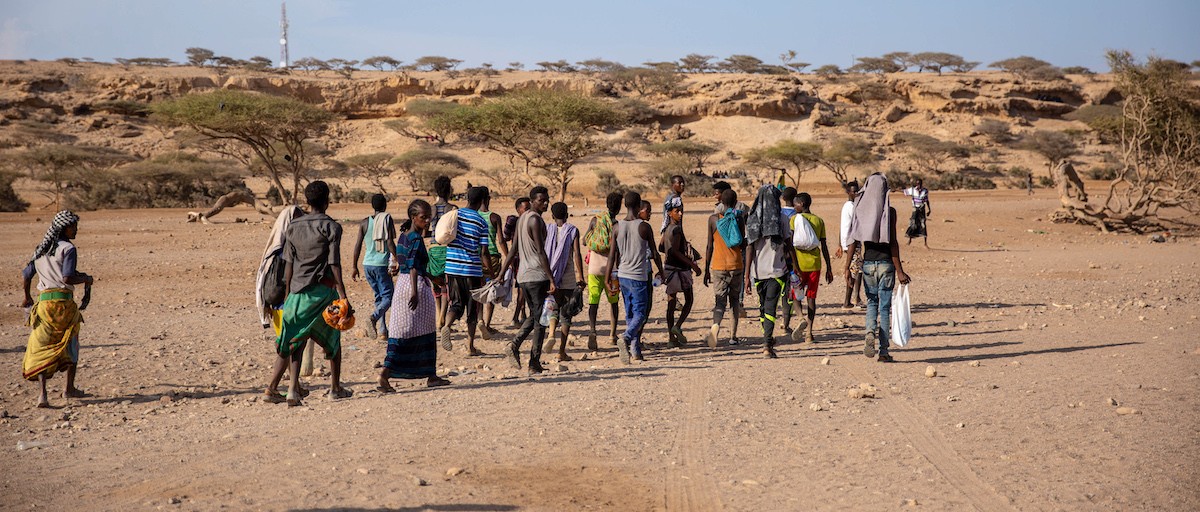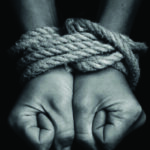Combating Human Trafficking
Human Trafficking
Human trafficking is the recruitment, transportation, transfer, harboring, or receipt of persons by means of threat, use of force, coercion, abduction, fraud, or deception for the purpose of exploitation.
Forms of Trafficking:
Trafficking can take various forms, including but not limited to:
Sex Trafficking: Involves the recruitment, harboring, or transportation of individuals for the purpose of sexual exploitation, such as prostitution or pornography.
Labor Trafficking: Involves the recruitment and exploitation of individuals for forced labor, often in industries like agriculture, construction, domestic work, or factories.
Child Trafficking: Children are particularly vulnerable and may be trafficked for both sexual exploitation and forced labor.
Organ Trafficking: illicit trade in organs, where individuals are coerced or forced into donating their organs.
Victims: Victims of human trafficking can be of any age, gender, or nationality. Vulnerable populations, such as migrants, refugees, and marginalized communities, are often targeted.
Traffickers: Criminal networks and individuals profit from human trafficking. They manipulate and control victims through threats, violence, and coercion.
Consequences: Victims of human trafficking suffer physical and psychological trauma. They may face abuse, sexual assault, long working hours, poor living conditions, and deprivation of basic human rights.
Global Issue: Human trafficking is a transnational problem, with victims and traffickers crossing international borders. This makes it challenging to combat and requires international cooperation.

You can also contribute to making your community a better place to live in by mentoring people on how to be more responsible.
Other Campaigns
Drug Abuse
Addiction is a complex issue, and it can be particularly challenging for people to overcome.
Haven Empowerment
The process of enabling individuals or communities to gain control over their lives, make informed decisions, and take action to improve their circumstances.
Uniting People
These initiatives, among others, have played a significant role in Rwanda’s remarkable progress in healing and reconciliation. While the journey is ongoing,
Testimonials
Barancille was promised a job that would change her life in Saudi Arabia but got trafficked by a man she barely knew. It took quite a long process for them to obtain travel documents through illegal means, as they had to go through Burundi, Tanzania, Uganda, and Kenya to travel to Saudi Arabia.

Human Trafficking
Damaris Akumu and Marleen Nduta Gitau were tricked into being trafficked from Kenya to Myanmar on 4 August 2022. They were recruited for teaching and front-office jobs and added to a WhatsApp group controlled by Kenyan, Chinese or Thai administrators. They each paid up to US$2 000 for air tickets and airport transfers.

Human Trafficking
Amina's journey began with hope, but it soon turned into a nightmare. Upon reaching the city, she realized the promises made were nothing but lies. She was forced into labor, working long hours under deplorable conditions without any pay. Isolated from her family, Amina faced physical and emotional abuse at the hands of her traffickers.
PROSECUTION
The government increased anti-trafficking law enforcement efforts. The Preventing Trafficking in Persons Act of 2009 criminalized sex trafficking and labor trafficking and prescribed punishments of up to 15 years’ imprisonment for offenses involving adult victims and up to life imprisonment for those involving child victims. These penalties were sufficiently stringent and, with respect to sex trafficking, commensurate with those prescribed for other serious crimes, such as kidnapping.
The Coordination Office to Prevent Trafficking in Persons (COPTIP) remained responsible for compiling law enforcement data. COPTIP continued to report “incidents” related to human trafficking, which ranged from simple inquiries to full police investigations; the government did not provide a breakdown of the various categories that made up an incident or how many incidents resulted in full investigations.
In 2022, the government reported investigating 1,200 incidents of human trafficking, a significant increase compared with 421 incidents in 2021. Of the 1,200 reported incidents of human trafficking, at least 526 involved exploitation in Uganda and at least 63 involved exploitation abroad; the remaining incidents involved unspecified forms of trafficking. The government reported initiating prosecutions against 728 alleged traffickers in 589 cases in 2022, compared with prosecuting 537 individuals in 403 cases in 2021. Of the 589 cases filed, 338 involved sex trafficking, 173 involved labor trafficking, and 78 involved unspecified forms of trafficking; 526 involved exploitation in Uganda and 63 involved exploitation abroad.
The government withdrew one case due to lack of evidence, while 335 cases remained ongoing at the end of the reporting period; the government reported referring 348 cases to court. Courts convicted 73 traffickers under the 2009 anti-trafficking act, compared with 30 convictions in 2021. Of the 73 convictions, courts convicted 42 traffickers for child sex trafficking, six for child labor trafficking, one for child sex and labor trafficking, two for adult sex trafficking, 11 for adult labor trafficking, and 11 for unspecified forms of trafficking. Courts sentenced the majority of traffickers to significant prison terms; however, courts often sentenced labor traffickers to less significant penalties, including fines in lieu of imprisonment. Courts also convicted three sex traffickers under the penal code statutes for “defilement” of a child. Courts acquitted three traffickers for unspecified reasons.
Corruption and official complicity in trafficking crimes remained significant concerns, inhibiting law enforcement action. Observers reported police officers and immigration officials, particularly at airports and border crossings, accepted bribes to facilitate trafficking crimes or to warn traffickers of impending operations and investigations. Media and senior government officials reported high-level officials may have owned or been associated with some labor recruitment companies suspected of trafficking. In 2022, the government investigated seven government officials – including police officers, military officers, and public officials – involved in potential trafficking crimes; all seven cases remained ongoing at the end of the reporting period. Of the six officials investigated for potential trafficking crimes in 2021, the government referred one official to court for prosecution, dropped cases of two officials due to lack of evidence, and released three officials on bail.
Bella
Human Trafficking